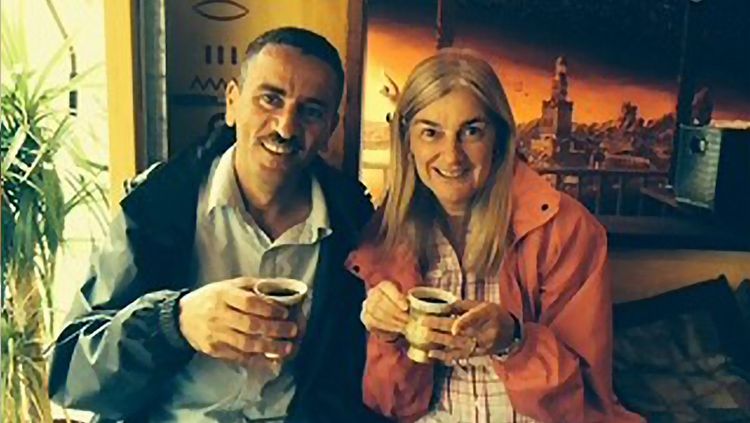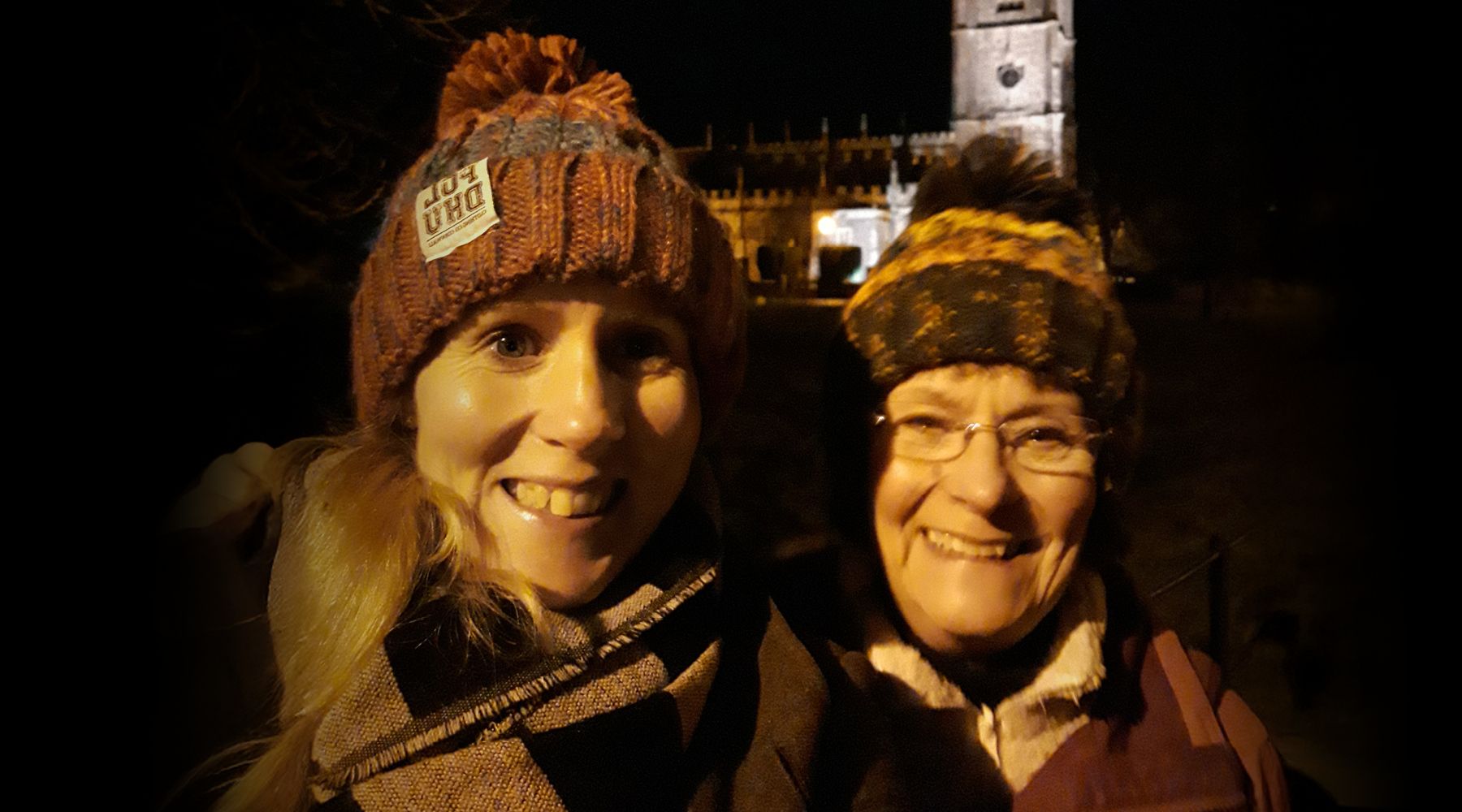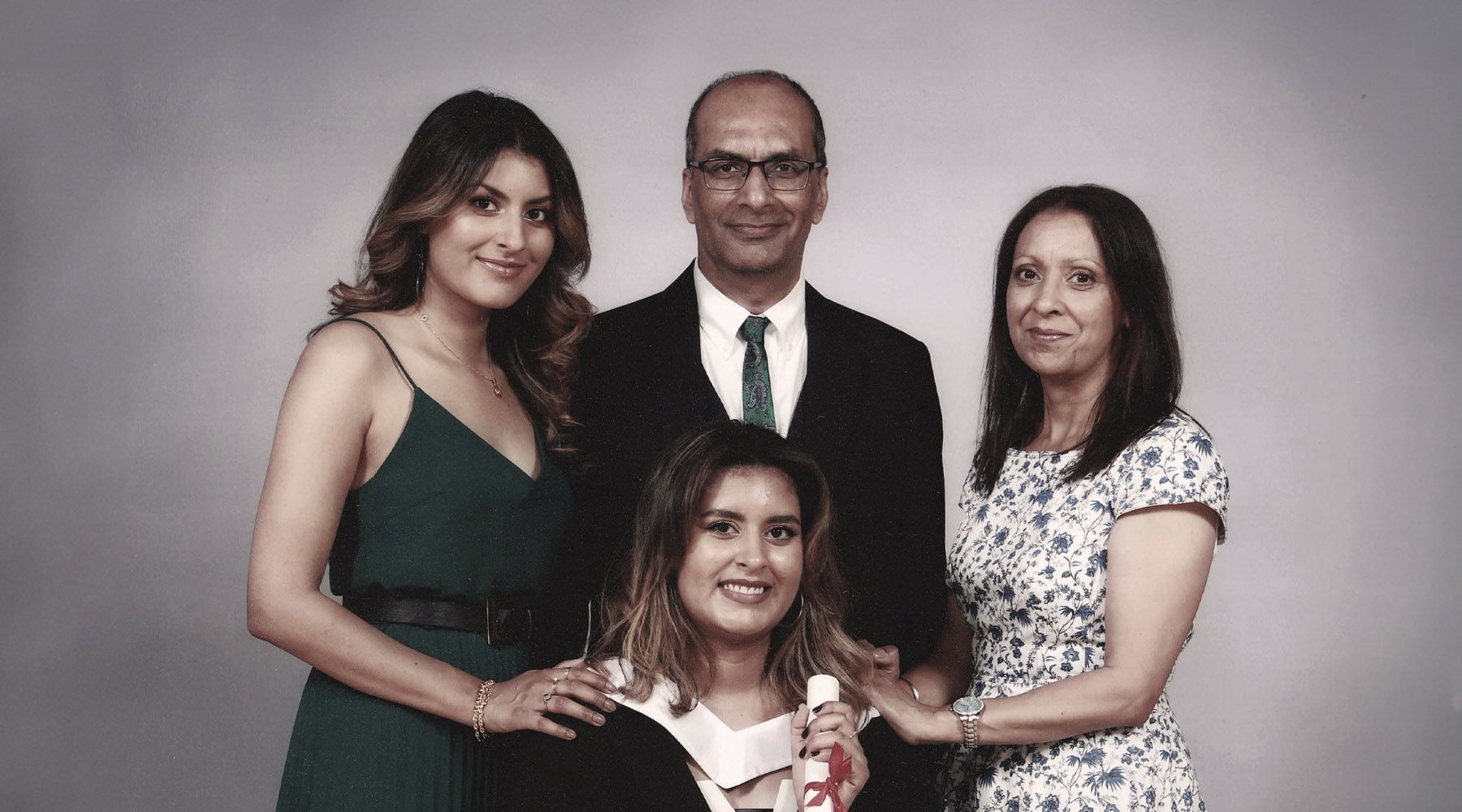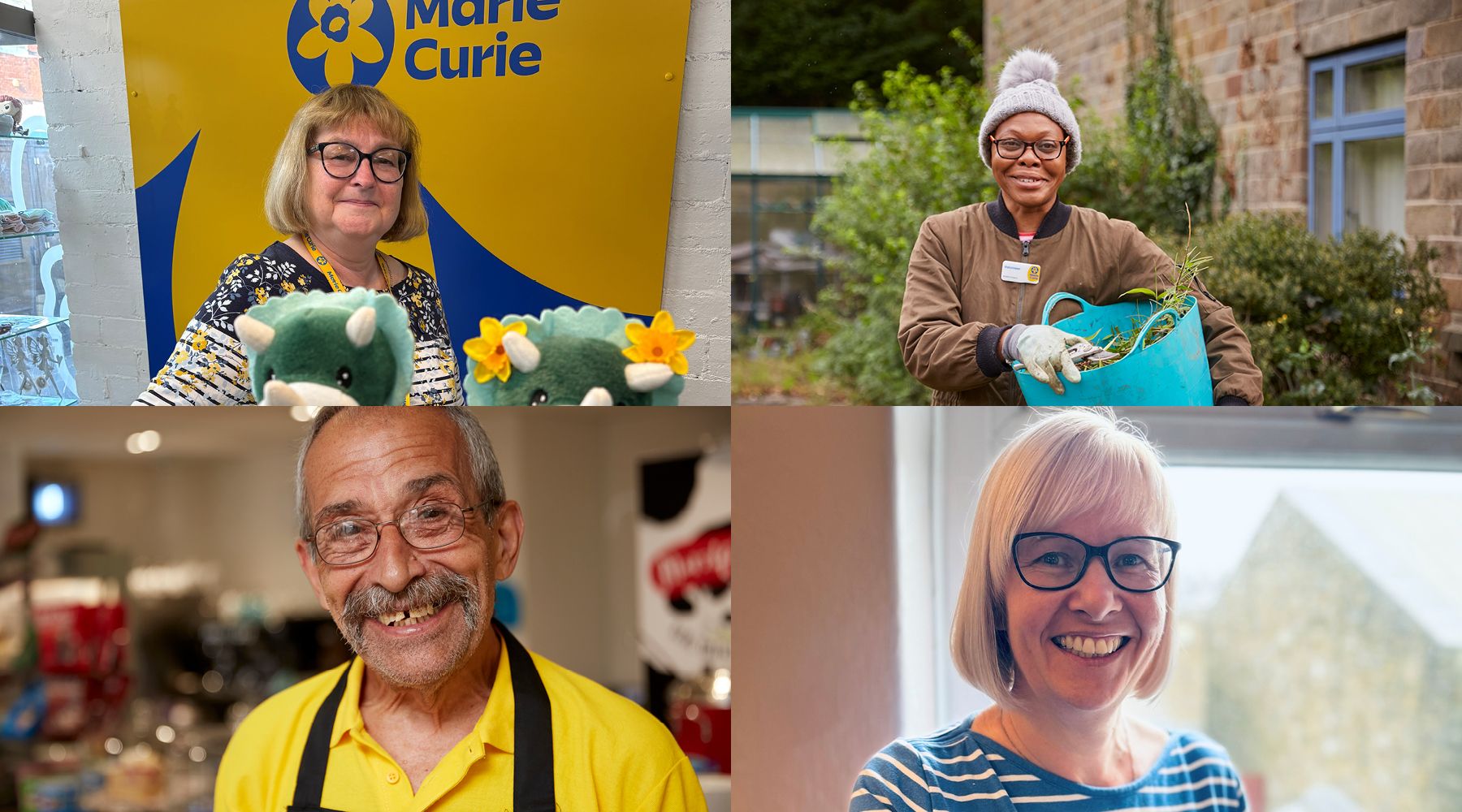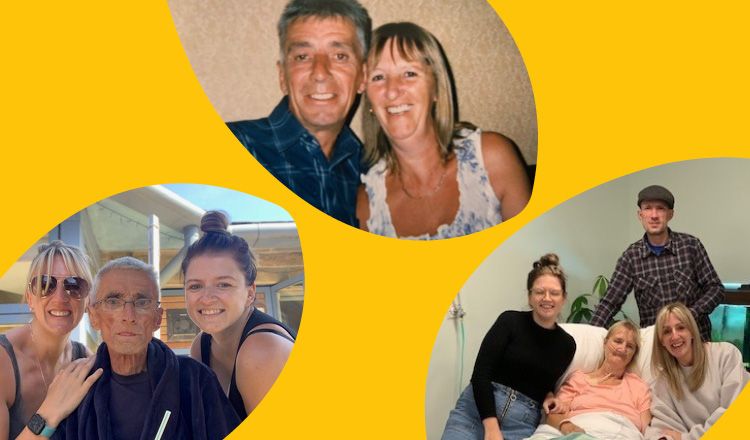Francine and her husband Fathi, who is living with dementia, receive support at home from Marie Curie. She explains the huge difference finding Marie Curie services made when she didn’t know where to turn.
Fathi and I met in Kuwait. I was teaching business, and he was an accountant in the same organisation. We went on to live in Jordan, Dubai, New Zealand and Australia, before moving to Wales in 2022.
Just before we arrived here, we’d started to notice something wasn’t quite right with Fathi. But we didn’t know what it was. He was only 54 and we were starting a new life here. It was concerning and worrying.
Getting a definitive diagnosis has been an uphill battle. I really had to fight. Finally, last year, a neurologist confirmed Alzheimer's and primary progressive aphasia, which is a rare form of dementia. This means Fathi’s speech and language are affected as well as his memory. He was just 57 when he was diagnosed.
"I didn't know where to get help as a carer"
I didn’t know what to do, or where to turn. I’m very independent and I find it difficult to ask for help. We don’t have children, or local friends or family who could support us. It really is just me. It took me months to pluck up the courage to go into the dementia hub in Quadrant, Swansea. In the end I went in and just burst out crying. I was in a very bad place.
They helped me to get support, and information about planning ahead, and things like Lasting Power of Attorney. They also told me about the Sunflower Café, a dementia support café based in St. Theodore’s, Taibach. That’s where I found out about Marie Curie support for people with dementia and their families. Knowing there’s support and people who can help makes such a difference.
At that stage I felt we didn’t need extra help as the memory clinic had arranged for a nurse to call every morning. But then, before Christmas 2023, Fathi fell and broke his kneecap and femur. I started to think that perhaps I did need more support. I had the Marie Curie Co-ordinator Chloe’s details, so I got back in touch.
“Our Marie Companion means I don’t feel so weighed down with responsibility”
She arranged a Marie Curie Companion volunteer, Craig, to visit us at home. He comes over every Tuesday – and for the three hours he’s here, I don’t feel weighed down with all the responsibility. It’s been a godsend. Fathi and I both really look forward to him coming.
Craig is very flexible with how he supports us. He might help me round the house with things that I can’t do and Fathi is no longer able to. Or we’ll all go out and have a lovely time. Maybe to the Sunflower Café, or the garden centre if I need some bits. If I have a medical appointment, Craig will take Fathi to the beach and pick me up later.
It's not just practical support though. Craig has become a friend as well as a volunteer. He always tells me to call him if we need anything. He brings us eggs from his chickens and sends pictures of what he’s up to when he goes on holiday.
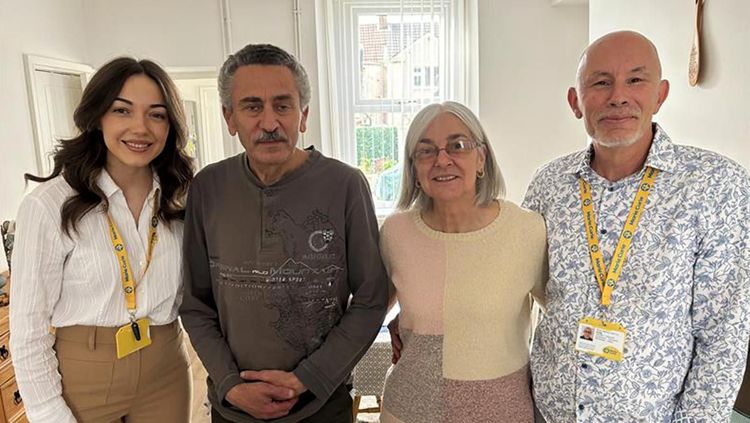
Marie Curie Co-ordinator, Chloe (left) with, Fathi, Francine and Marie Curie Companion, Craig
“As the dementia has progressed, Marie Curie has given us more clinical support”
As Fathi’s dementia has progressed, we’ve also got clinical support from the Marie Curie Dementia Care and Respite service. Things had become particularly hard, and I fell apart a bit. Chloe realised I had no other support or time to myself, so she arranged for a Marie Curie Healthcare Assistant to visit most weeks.
Because of Fathi’s Alzheimer’s and aphasia, it can be hard for him to communicate. When he speaks, I think it makes sense in his head, but it comes out wrong. He can’t remember names or details and I’m not always sure which country he’s talking about. It’s so important that he feels comfortable. It takes him a while to get used to people.
The Marie Curie team understand all that. They’re so respectful of his needs. They will get out some old photos and use those help him talk about places we’ve lived and our lives there. If he’s comfortable he’ll chat away. That communication really helps maintain his dignity.
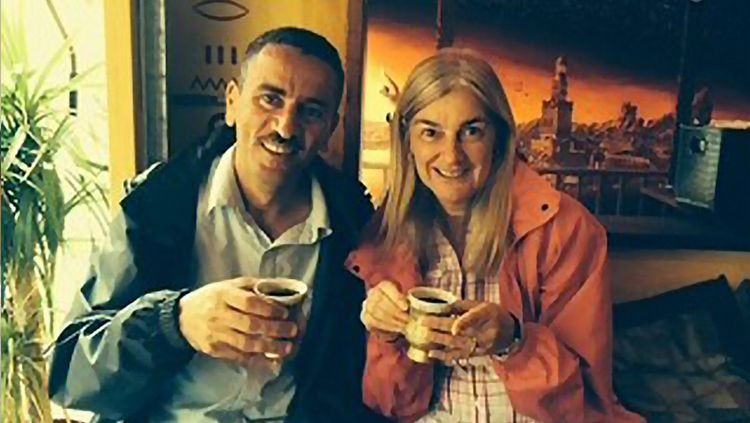
“Marie Curie support means I can relax a little – it’s a lifeline”
When the healthcare assistants are here, I know Fathi is in safe hands. I can go out, or do something I don't normally have time for. It’s a few hours to myself, not having to worry. I need that time to regroup, to relax a little. It’s good for my mental health. To be perfectly honest, it’s a lifeline.
Caring for someone with dementia can be overwhelming. It can take so long to get Fathi up, showered and dressed. One day he might be able to dress himself with prompting, but the day after he’ll go to the bathroom and not remember what to do. That’s the unpredictability of dementia. And you don't know from one minute to the next what sort of person you're going to get. Sad? Upset? Happy?
Alzheimer’s is a progressive illness. It’s going to get worse. I just try to do my best, to not get wound up. And I remember I’m very fortunate that Fathi is such a kind, generous and loving person.
It's important to me to care for him at home. With dementia, familiarity is important - being surrounded by things and people you know well. I feel so lucky to have access to services to support us in our own home, and to get that respite. Without it things would feel bleak. The support we get from Marie Curie brings some sunshine.
If you or someone close to you is living with dementia, you can get free practical and emotional support from our Support Line and Marie Curie Companion service. We provide expert care at home and in our hospices, whatever the illness, and through the Dementia Care and Respite service in some areas in Wales.
You can help provide more expert end of life care to people living with any terminal illness, including dementia. Donate today.
All rights reserved. Contact stories@mariecurie.org.uk for more information.
